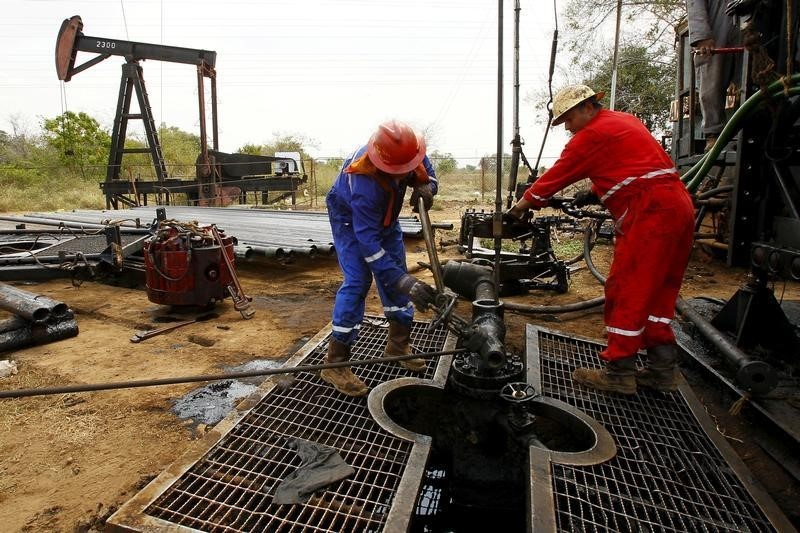By Peter Nurse
Investing.com -- Oil prices collapsed Friday, falling to the lowest levels in two months after the news of a new Covid variant led to fears of renewed mobility restrictions, potentially hitting demand from the air travel market.
By 9:20 AM ET (1420 GMT), U.S. crude futures traded 6.9% lower at $73.02 a barrel, while the Brent contract fell 6.1% to $77.23. Both benchmarks have fallen to their lowest levels since the end of September
U.S. Gasoline RBOB Futures were down 6.3% at $2.1740 a gallon.
These losses followed the World Health Organization announcing the detection, mainly in and adjacent to South Africa, of a new and possibly vaccine-resistant coronavirus variant.
The United Kingdom said this variant was the most significant one found yet, and banned flights from South Africa, Botswana, Lesotho, Eswatini, Zimbabwe and Namibia.
European Commission chief Ursula von der Leyen said the EU also aimed to halt flights from the region, describing the variant as "of concern."
The rebound in air travel is a key component in 2022 demand growth forecasts, representing the only major part of oil demand which is still clearly lagging 2019 levels.
“If the new variant does deliver its potential (usurping Delta, and reducing vaccine efficacy) we need to think about a globally soft/flat Q4 and Q1 GDP growth,” said Peter Chatwell, head of multi-asset strategy at Mizuho International, Reuters reported. “Vaccine efficacy will determine the severity of lockdowns, and therefore whether this becomes another recession.”
This news will increase the uncertainty of what the Organization of the Petroleum Exporting Countries and their allies, a group known as OPEC+, will decide to do when it meets to discuss production levels next week.
The group was already having to discuss the likely impact of the move by the coalition of major consumers, led by the U.S., to release crude from emergency supplies.
“OPEC’s Economic Commission Board warned that the global oil market could see large surpluses due to these releases, particularly over the early part of next year,” said analysts at ING, in a note. “As usual, expect plenty of noise in the lead up to next week’s OPEC+ meeting.”
